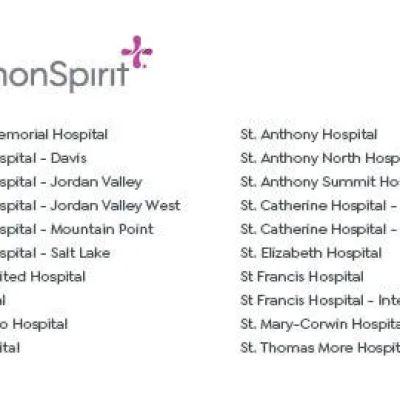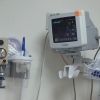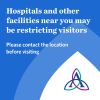- 1 - What Is Sleep Apnea and Why It Matters
- 2 - The Link Between Sleep Apnea and Heart Disease
- 3 - How Sleep Apnea Affects Heart Health
- 4 - Real-Life Case Studies and Personal Stories
- 5 - Diagnosis and Warning Signs You Shouldn’t Ignore
- 6 - Treatment and Prevention Strategies for Better Health
- 7 - Why Sleep Apnea as a Hidden Risk Factor Deserves Attention
1 - What Is Sleep Apnea and Why It Matters
Sleep apnea is more than just loud snoring or restless nights. It is a medical condition where breathing repeatedly stops and starts during sleep, leading to lower oxygen levels in the body. Over time, this condition can create a ripple effect on overall health, including energy levels, mood, and even cardiovascular function. Many people underestimate its seriousness, treating it as a minor inconvenience, but research has consistently shown that untreated sleep apnea can lead to chronic health issues. Understanding the condition is the first step toward recognizing why sleep apnea is considered a hidden risk factor for heart disease.

2 - The Link Between Sleep Apnea and Heart Disease
Scientists have found a strong connection between sleep apnea and cardiovascular problems. When the body struggles for oxygen during apnea episodes, the heart must work harder to compensate. This constant stress can increase blood pressure, cause irregular heart rhythms, and put a strain on blood vessels. Studies published in journals such as the American Heart Association have shown that individuals with untreated sleep apnea are significantly more likely to suffer from hypertension, heart failure, or even sudden cardiac death. The relationship between sleep apnea and heart disease is no longer speculation—it is a recognized medical risk supported by years of clinical research.
Atlanta Heart Specialists
atlanta heart specialists
4375 Johns Creek Pkwy #350, Suwanee, GA 30024, USA

3 - How Sleep Apnea Affects Heart Health
The impact of sleep apnea on the cardiovascular system goes deeper than occasional oxygen deprivation. Frequent drops in oxygen trigger the release of stress hormones like adrenaline, which raise blood pressure and increase inflammation in the arteries. This creates a fertile ground for plaque buildup, narrowing the arteries and heightening the risk of heart attacks. In addition, the irregular breathing patterns disrupt the balance of oxygen and carbon dioxide in the blood, affecting how efficiently the heart pumps. Over time, the combination of high blood pressure, vessel damage, and irregular heartbeats sets the stage for long-term cardiovascular disease. For many patients, sleep apnea silently accelerates these processes without them even realizing it.
4 - Real-Life Case Studies and Personal Stories
Consider the story of a 52-year-old man who ignored his constant fatigue and heavy snoring for years. After a sudden heart attack, doctors discovered he had severe obstructive sleep apnea. His condition had gone untreated for so long that it directly contributed to his cardiovascular event. Another example comes from a woman in her 40s, who sought medical advice after feeling constantly drained and struggling with high blood pressure. A sleep study revealed she was experiencing over 30 apnea episodes per hour. With treatment, her blood pressure stabilized, and her risk of further heart complications decreased dramatically. These stories show how easily sleep apnea can go unnoticed until it becomes a serious health crisis.
5 - Diagnosis and Warning Signs You Shouldn’t Ignore
Recognizing sleep apnea early can make a world of difference for heart health. Common signs include loud, chronic snoring, gasping for air during sleep, excessive daytime sleepiness, morning headaches, and difficulty concentrating. While many dismiss these symptoms as signs of stress or aging, they can actually be red flags for a deeper condition. Diagnosis often requires a sleep study, either in a specialized clinic or with at-home testing devices. If you or someone you know experiences these symptoms, consulting a healthcare provider is crucial. At HeartCare Hub, we emphasize the importance of not overlooking these signs, as timely diagnosis can prevent future cardiovascular complications.
6 - Treatment and Prevention Strategies for Better Health
Fortunately, sleep apnea can be managed effectively once diagnosed. Common treatments include Continuous Positive Airway Pressure (CPAP) machines, which keep airways open during sleep, and dental devices designed to reposition the jaw. Lifestyle changes—such as losing weight, quitting smoking, and reducing alcohol intake—also play a significant role in reducing symptoms. In some cases, surgical options may be considered. Treating sleep apnea not only improves sleep quality but also reduces the strain on the heart, lowering the risk of cardiovascular disease. Prevention strategies, such as maintaining a healthy lifestyle and regular medical checkups, ensure that sleep apnea and its hidden dangers do not go unchecked.
7 - Why Sleep Apnea as a Hidden Risk Factor Deserves Attention
Sleep apnea remains underdiagnosed, leaving millions unaware of its silent but dangerous effects on the heart. By highlighting its role as a hidden risk factor for heart disease, healthcare professionals hope to encourage early detection and treatment. Raising awareness is essential, not only to improve individual outcomes but also to reduce the overall burden of cardiovascular disease in society. The truth is simple: prioritizing sleep health is prioritizing heart health. For those who want to learn more or explore supportive products, HeartCare Hub offers resources and recommendations to help protect both your sleep and your heart.





















Deborah Heart and Lung Center
deborah heart and lung center
200 Trenton Rd, Browns Mills, NJ 08015, USA